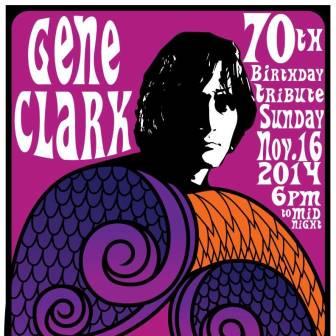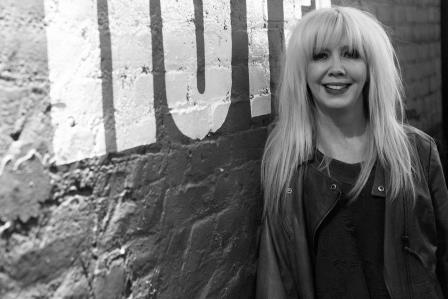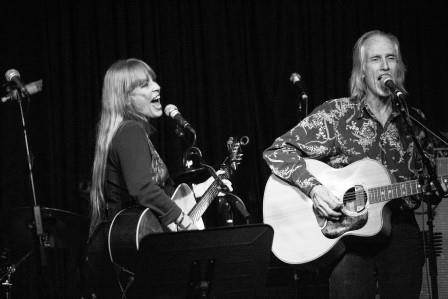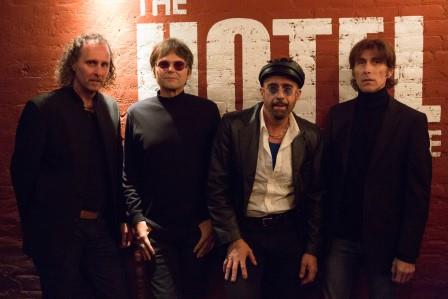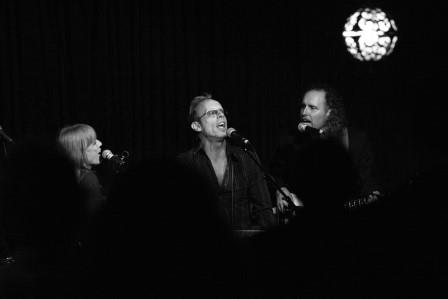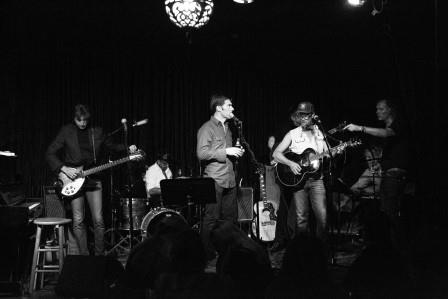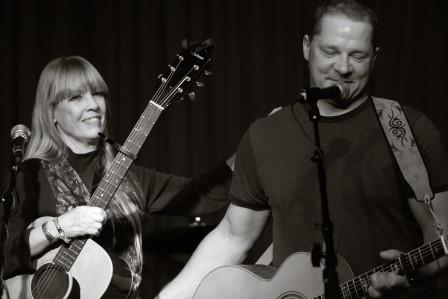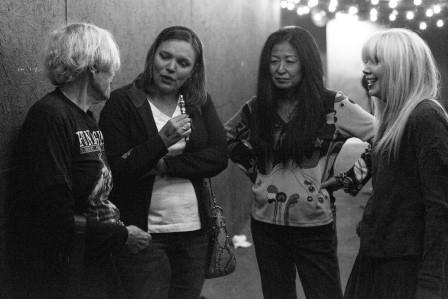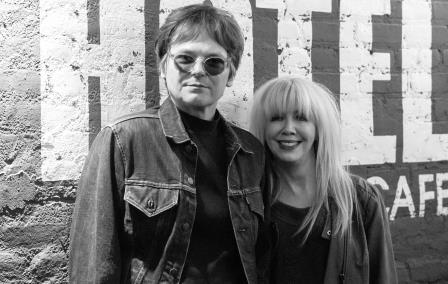
| |||||
|
|
|
“They were not named Tab or Rock, not even Jim, Bill or Bob. They all had names like Leroy, Floyd, Elvis. All outcasts with their contemporary costumes of duck ass haircuts, greasy Levis, motorcycle boots, T-shirts for day and black leather jackets for evening wear. Even with unfashionably long sideburns (Elvis’s were furry) expressed contempt for the American dream they were too poor to be part of,” said writer Stanley Booth describing the natural rebellion Presley represented.
Music is not tidy or linear.
Gene Shay, the co-founder of the Philadelphia Folk Festival said of the folk movement that followed, “Anybody with an Autoharp and a third-grade singing voice can pull off a passable rendition of ‘Michael, Row the Boat Ashore’; it takes Chuck Berry to sing Johnny B. Goode.”
No one could have known it then but the folk stars of the early sixties were the first rock stars. Like so many young men of their generation, The Byrds formed in Los Angeles, California in 1964, selected their Rickenbacker and Gretsch guitars and Ludwig drums in emulation of John Lennon, George Harrison and Ringo Starr. “The Byrds weren’t a rock band, “said Chris Hillman, bass and vocals. But until The Byrds were invited to play their first gig at Ciro’s, a 1930’s-era Sunset Strip nightclub trying to reinvent itself as a rock’n’roll parlor, L.A.’s clubs tended to be accompanied by Motown hits spun by bored DJs or live R&B bands. But now there was a new wave of music that blew away days of playing for nothing at the Troubadour and building calluses on slender white fingers. The mesh of Jim McGuinn (lead guitar, vocals), Gene Clark (tambourine, vocals), David Crosby (rhythm guitar, vocals), Chris Hillman (bass, vocals), and Michael Clarke (drums) changed much of what would follow. Their cover versions of Bob Dylan’s “Mr. Tambourine Man” and Pete Seeger’s “Turn! Turn! Turn! along with self-penned originals, “I’ll Feel a Whole Lot Better”, “Eight Miles High”, “So You Want to be a Rock’n Roll Star”, “Ballad of Easy Rider” and “Chestnut Mare” started the course to an Americana movement.
Just like the punk rockers flipped the bird at the over-produced self-indulgent seventies, artists like Gram Parsons (The Byrds, Flying Burrito Brothers), Gene Clark and others blew away the fifties in Southern California to produce a later wave of artists like Lucinda Williams, Rosie Flores, The Blasters, Jim Lauderdale, Buddy Miller, Dwight Yoakam and more.
“For me music is a living thing, constantly changing with old forms renewed and altered, new forms spinning off from what came before,” says Sleepy Joe Lee, Americana/ Blues musician his original “Ropes of Sand” capturing the spirit.
“When the modern day label Americana started being used, maybe late 90’s, the definition was ‘too rock for country, too country for rock’ which covers a lot of sub-genres,” says Dusty Wakeman, bass player for The Sin City All Stars and President of Mojave Audio, known for owning and operating Mad Dog Studios, recording and engineering Roy Orbison and k.d. lang’s Grammy-winning “Crying”. “It sprang from the interpretations of all these genres by the Buffalo Springfield, The Byrds, Gram Parsons and Chris Hillman, even the Beatles Rubber Soul and the Stones.”
Grammy-winning guitarist Pete Anderson, producing musicians like Dwight Yoakam, Roy Orbison, The Meat Puppets, Jackson Browne and owns Little Dog Records knows just what’s happening. “In my opinion, songwriters that don’t fit neatly in any one format are more so an American art form of songwriting. Indies are truly the future of what has been left behind by the ravages of the major label corporations that had a strangle hold on art for so many years.” And how does a producer approach music? “I produce only to serve the song.”
Because of the changing landscape, singer-songwriters like Gene Clark of The Byrds resurface as important influences on ALL types of music. Had he lived, he would be turning 70 years old. November 16th at Hotel Café in L.A. musicians gathered to pay tribute to one of the pioneers of songwriting. Benefiting Native Americans, the line-up included Kai Clark, Gene’s son, Carla Olsen, Bob Woodruff, The Psychedelic Cowboys, Jangle Brothers, The Digs and more. High Moon Records will be releasing Gene Clark’s music in the near future.
Predecessors will always be the staple of future bands who sound nothing like them. What these new artists will do is infuse their own rogue sound and will remember who they listened to in their bedrooms with cheap headsets. Roots, Rebels, Americana: to every musician who picks up an instrument, Punk Globe Magazine salutes your strong addiction to a dream.
|
|
|
